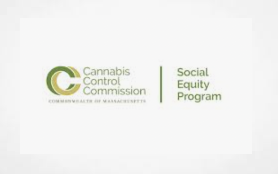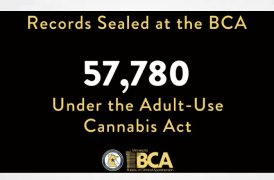Authored By: William F. McDevitt, Esq.
The Pennsylvania Commonwealth Court has decided a new case that may have a huge impact on cannabis licensing in the Mid-Atlantic region. The Commonwealth Court hears cases involving state and local government entities and state agencies in Pennsylvania and has heard a number of challenges regarding the administration of the 2016 Medical Marijuana Act (MMA).
In April 2018, the Court dismissed a challenge to the licensing process in Keystone ReLeaf, LLC v. Pennsylvania Department of Health, et al., 399 M.D. 2017, holding that the applicants failed to exhaust their administrative challenges to licensure awards. In August 2018, the Court enjoined the Department of Health (DOH) from issuing licenses to Clinical Registrants, a class of medical marijuana entity that the MMA allows to conduct research on behalf of Academic Clinical Research Centers. While the Legislature has amended the MMA and approved revised regulations to address the injunction, the case, AES Compassionate Care, LLC v. Rachel L. Levine, 233 MD 2018, is the subject of an appeal and the injunction remains in place.
Right to Know Affects License Evaluation
The newest Commonwealth Court ruling on cannabis is Pennsylvania Department of Health v. Wallace McKelvey and PennLive, 1372 C.D. 2017. The September 27, 2018, Order and Opinion in McKelvey affirms a decision by Pennsylvania’s Department of the Office of Open Records (OOR) and requires the DOH to release the names of the panelists who evaluated the issuances of grower/processor and dispensary licenses in Pennsylvania.
The DOH initially denied the Right to Know application of PennLive and its reporter, McKelvey, which sought the “names, job titles and departments” of the persons who reviewed and scored the cannabis license applications. The DOH took the position that the information was confidential under the MMA and that disclosure could endanger the lives of the employees in question. The decision was administratively appealed to the OOR (which reviews requests under the Right to Know, Pennsylvania’s “Sunshine Law”), which denied the request, finding that the names of panelists are confidential only when sought with respect to an application for a permit or the denial of an application. In other words, the identity of the person or persons who reviewed a particular application is confidential, but the identity of the members of the overall panel of reviewers is not.
The DOH appealed the OOR’s decision. While the appeal was pending, tthe DOH revised its regulations to exempt the identity of cannabis application reviewers from the provisions of the Right to Know Law. This is the same tactic that the DOH used in its attempt to circumvent the Commonwealth’s injunction in AES Compassionate Care, LLC. In McKelvey, the Commonwealth Court rejected the retroactive application of the revised regulations.
The Commonwealth Court held that, as with all government records, it is presumed that the DOH’s medical marijuana permit selection process is public and subject to disclosure. The disclosure of the panel as a whole is consistent with the provisions of the AMA and its regulations because the identity of the persons who reviewed and scored any particular application would remain confidential. The Court also held that the DOH had failed to establish that disclosure would expose panelists to actual danger or undermine the impartiality of the review process in the future. The DOH has appealed this ruling.
Summary
The DOH’s efforts to maintain the integrity of its medical marijuana application process is crucial to protecting its medical cannabis industry, including medical research. The manner in which a state licenses and maintains control over medical marijuana is crucial to maintaining the “state-legal” status previously defined by the (now revoked) Cole Memorandum and the (currently recognized) Guidance FIN-20014-G001 (Guidance) issued by the federal Department of the Treasury Financial Crimes Enforcement Network (FinCEN). The strength and integrity of Commonwealth regulation may make a difference if the federal government attempts to curtail Pennsylvania’s medical marijuana program.
It is not known whether other Mid-Atlantic states that have medical marijuana programs (including Delaware, Maryland, New York and New Jersey) also will seek to insulate their application process to avoid either federal scrutiny or individual licensure challenges. But, if the licensure of medical cannabis is subject to public disclosure, then all aspects of cannabis regulation and enforcement might eventually find its way into the public forum.
About the Author
William F. McDevitt is a partner in the Philadelphia office of national law firm Wilson Elser, where he is a member of the firm’s Cannabis Law practice. He can be reached at william.mcdevitt@wilsonelser.com.

















